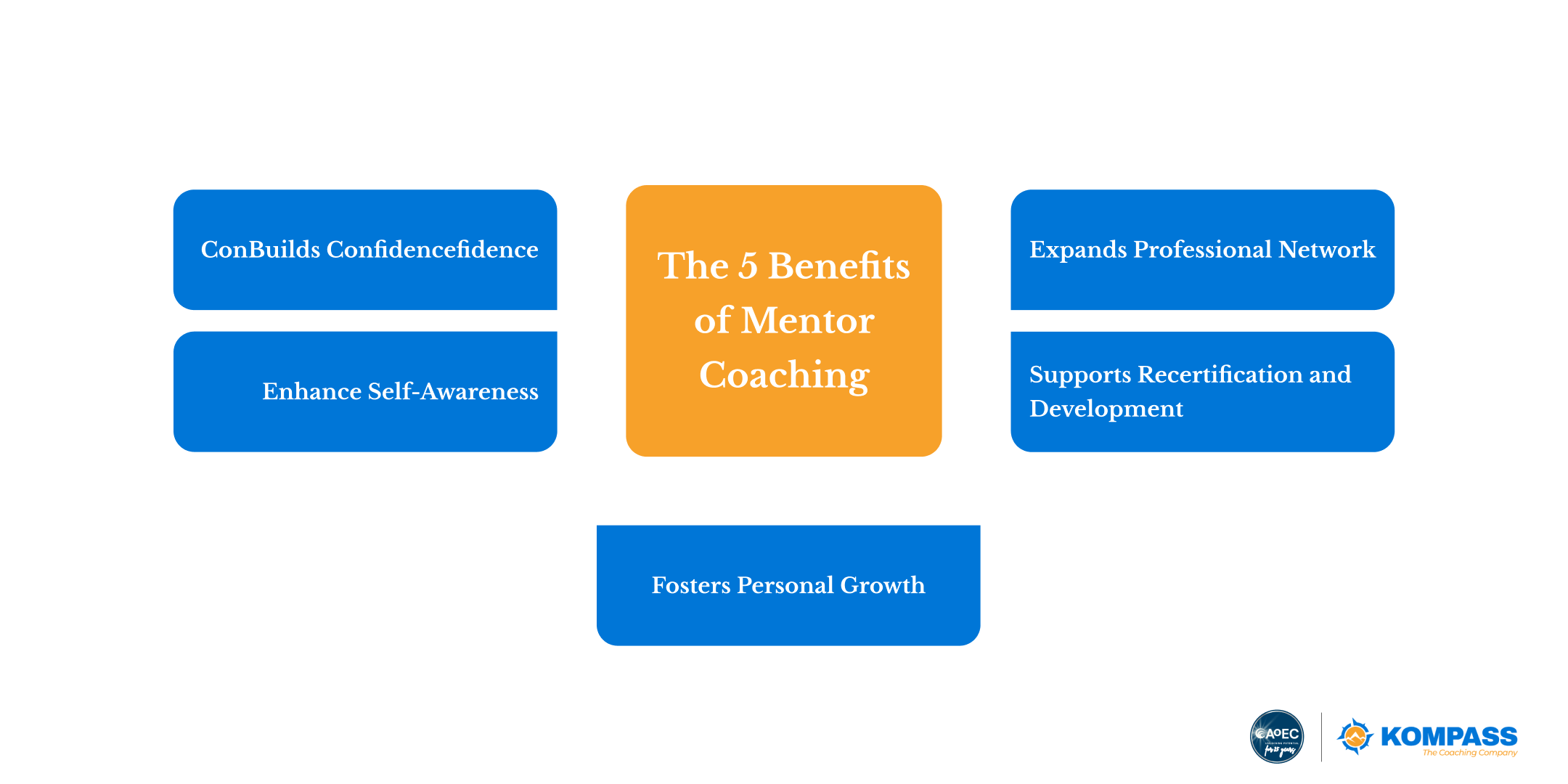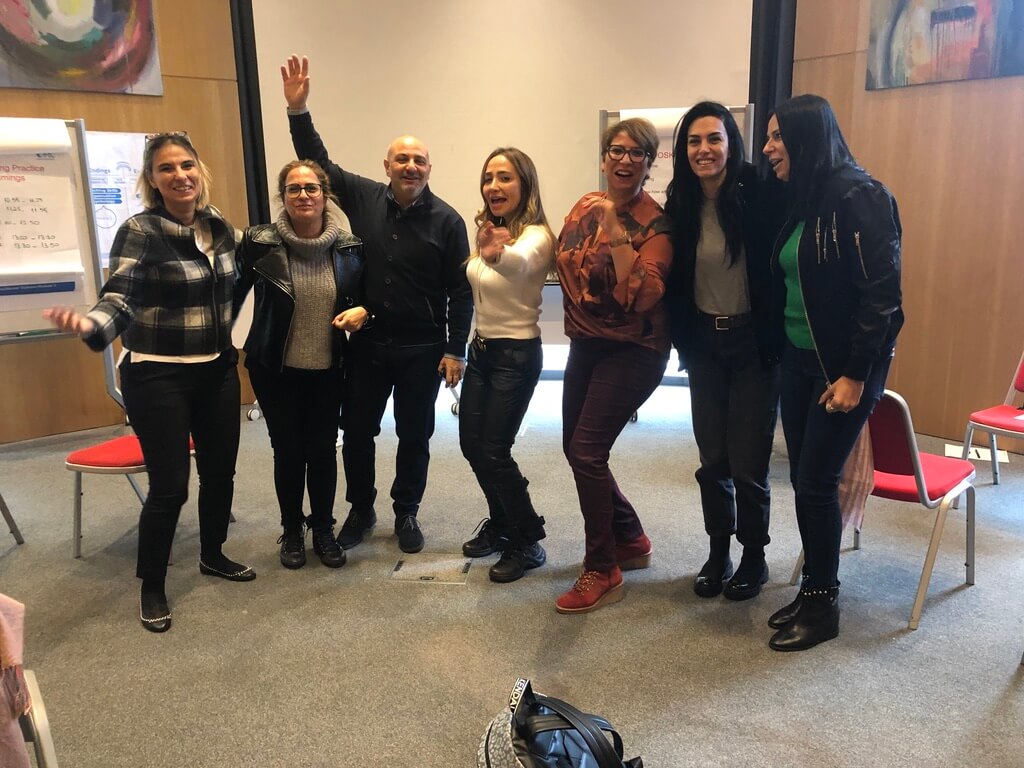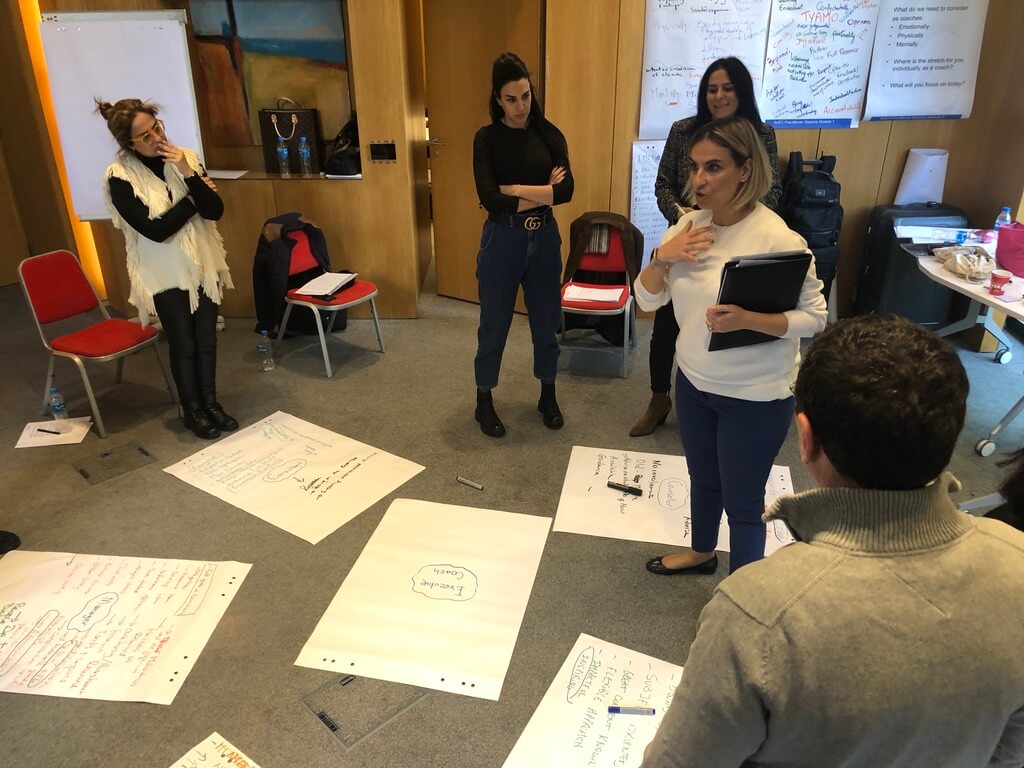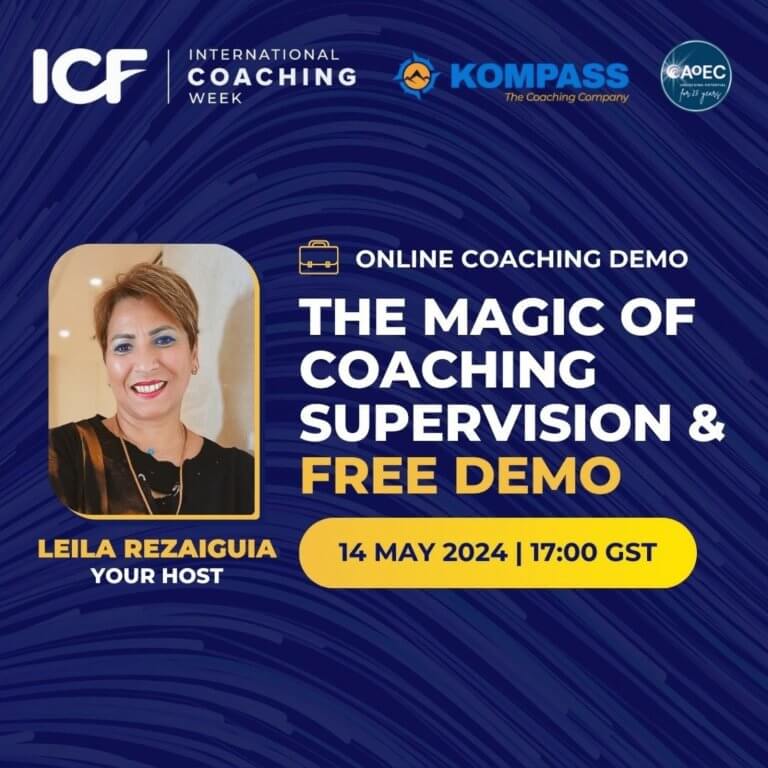Mentor coaching is vital in achieving or renewing certification with the International Coaching Federation (ICF). It’s a structured process where experienced, credentialed coaches provide feedback and guidance to help aspiring or practising coaches enhance their skills.
Beyond meeting a certification requirement, mentor coaching focuses on sharpening coaching competencies and aligning practices with ICF’s professional standards.
This blog explores what mentor coaching entails and why it’s a key step in the ICF credentialing process. We’ll examine how it supports professional growth, builds confidence, and prepares coaches for certification.
What Is Mentor Coaching?
Mentor coaching is a structured process where an experienced, credentialed coach helps another coach refine their skills and meet professional standards. For those exploring how to become an ICF certified coach in the UAE, mentor coaching is an essential step in the journey. The International Coaching Federation (ICF) focuses on developing the core competencies needed for certification. These competencies include effective communication and building trust with clients.
Unlike general coaching, mentor coaching is not about solving personal challenges or achieving external goals. It is designed to improve the professional coaching skills required for ICF credentials.
Responsibilities of an ICF Mentor Coach
An ICF mentor coach observes and reviews coaching sessions to assess the mentee’s use of core competencies. This process involves evaluating the effectiveness of the coaching techniques and identifying areas for improvement. For many, this guidance can serve as a foundation for career coaching focused on discovering and pursuing their passion, ensuring their coaching approach resonates with their professional goals.
The mentor provides detailed, constructive feedback based on the ICF core competencies. This feedback helps the mentee refine their skills and address gaps in their approach.
Mentor coaches also play a key role in supporting the mentee’s professional development. They offer practical advice and strategies to enhance confidence and coaching abilities.

The Deeper Impact of Mentoring for Coaches
Mentoring for coaches does more than help you meet the ICF’s credentialing requirements. It supports real improvement in how you coach and how you grow as a professional.
Working with a mentor coach gives you the chance to step back and take a closer look at your approach. You’ll receive feedback that’s focused on what’s actually happening in your sessions, not just theory. This helps you notice patterns, make changes where needed, and build confidence in your skills.
Mentoring also encourages reflection. It gives you space to think about your coaching style, how you work with clients, and how closely you align with ICF standards. Over time, this kind of support can improve not just your technique, but also how you show up in your coaching relationships.
Another benefit is accountability. A mentor coach helps you stay on track with your goals and gives you structure as you prepare for certification or continue your development. It’s not about getting everything right, it’s about growing in the right direction.
Why Mentor Coaching Matters for Certification
Mentor coaching is a key step in achieving an ICF credential. It is a mandatory requirement, with coaches needing at least 10 hours of mentor coaching for ACC, PCC, or MCC certification. This ensures that they meet the high standards set by the ICF for professional practice.
Through mentor coaching, coaches receive focused guidance on aligning their skills with the ICF’s core competencies and ethical guidelines. This process helps them refine their techniques and ensures their coaching practice meets the expectations of the credentialing body.
The feedback provided by a mentor coach is instrumental in preparing for performance evaluations. By identifying strengths and addressing areas of improvement, the mentor ensures the coach is ready to demonstrate their abilities at the required standard.
The Broader Benefits of Mentor Coaching

-
Builds Confidence
Mentor coaching is significant in helping coaches build confidence in their abilities. Through focused feedback and guidance, coaches learn to identify and use their strengths effectively in their practice.
With greater confidence, they approach their sessions with clarity and purpose.
-
Enhances Self-Awareness
Coaches are encouraged to reflect on their methods and understand how their behaviours and decisions impact their clients. This process allows them to pinpoint their strengths and identify areas for improvement.
By becoming more aware of their habits and tendencies, coaches can make intentional changes to their practice, leading to more effective and meaningful coaching.
-
Fosters Personal Growth
Mentor coaching is also an opportunity for personal growth. The process challenges coaches to step outside their comfort zones and embrace new learning experiences. This fosters resilience, adaptability, and a commitment to continuous improvement.
As coaches develop professionally, they also grow personally, gaining skills and insights that benefit all aspects of their lives.
-
Expands Professional Networks
Mentor coaching provides a valuable chance to expand professional networks. By working closely with an experienced mentor, coaches establish relationships built on trust and shared learning.
Mentor coaching often connects individuals with peers and other professionals in the coaching community, creating opportunities for collaboration and support.
-
Supports Recertification and Development
Mentor coaching is essential for experienced coaches to maintain ICF credentials and stay current with professional standards.
It ensures that they continue to meet the requirements for recertification while refining and enhancing their skills.

The ICF Credentialing Process and Mentor Coaching
The ICF credentialing process offers three levels: Associate Certified Coach (ACC), Professional Certified Coach (PCC), and Master Certified Coach (MCC). Each level requires a specific number of coaching education hours, coaching experience, and demonstrated competency, often achieved through structured coaching skills training.
Mentor coaching is an essential part of this process. Candidates must complete at least 10 hours of mentor coaching with an experienced, credentialed coach for ACC, PCC, and MCC certification. This ensures their coaching practice aligns with ICF’s core competencies and ethical standards.
It is also essential to accurately track and document mentor coaching hours. This documentation is a required part of the certification application, providing evidence of the candidate’s commitment to professional development.
How to Choose the Right Mentor for Coaching Success
Choosing an ICF mentor coach with the appropriate credentials is an important step in your certification journey. It ensures that your mentor meets the standards set by the International Coaching Federation (ICF), which is the global body that defines the competencies and ethical expectations for professional coaching. To be recognised as a mentor by the ICF, a coach must hold either a PCC (Professional Certified Coach) or MCC (Master Certified Coach) credential. This confirms they have advanced experience and understand how to evaluate coaching based on the ICF Core Competencies.
Working with a mentor coach who meets ICF’s credentialing requirements matters because your mentoring hours won’t count unless they are delivered by someone who is properly qualified. This is especially important when you are preparing to submit your application for ACC, PCC, or MCC certification, as ICF requires 10 hours of mentor coaching across a minimum period of three months.
When selecting a mentor, it’s important to look at both their experience and their coaching style. Experience includes:
- How long they’ve been coaching
- Whether they’ve mentored coaches for ICF certification before
- Whether they’ve been through the certification process themselves
- Their familiarity with the specific credential you’re applying for (ACC, PCC, or MCC)
Coaching style refers to how they guide, give feedback, and structure their sessions. Some mentor coaches take a more direct and structured approach, offering clear suggestions and strategies. Others may use a reflective style, asking questions that help you self-assess and build insight over time. The key is to choose someone whose approach aligns with how you learn best, whether that means receiving detailed feedback, having space to reflect, or a combination of both.
Your learning style matters because effective mentoring depends on how well you’re able to apply the feedback you receive. If the mentor’s approach doesn’t suit you, it may be harder to make progress or feel supported during the process.

Frequently Asked Questions
What is the difference between a mentor coach and a regular coach?
A regular coach helps clients work towards personal or professional goals. A mentor coach works with other coaches, providing feedback and support to improve coaching skills.
Do I need mentor coaching to apply for ICF certification in the UAE?
Yes. To apply for any ICF credential—ACC, PCC, or MCC—you must complete at least 10 hours of mentor coaching. This applies globally, including in the UAE. The sessions must be spread over at least three months, and they must be with a qualified ICF Mentor Coach.
Can mentoring for coaches be done online from the UAE?
Absolutely. At Kompass, we support coaches across the UAE through online mentor coaching sessions. This allows for flexibility and ensures you meet ICF requirements, whether you’re based in Dubai, Abu Dhabi, or elsewhere in the region.
How do I choose the right ICF Mentor Coach in the UAE?
Look for someone who holds a PCC or MCC credential and has experience mentoring coaches for certification. You should also consider their approach to giving feedback and whether their style matches your learning needs. At Kompass, we offer a discovery call to help you decide if our mentor coaching is the right fit.
What do I need to document from my ICF mentor coaching sessions?
When you apply for your ICF credential, you’ll need to list the name, credential level, and contact details of your mentor coach, along with the start and end dates of your mentoring. At Kompass, we guide you on how to track and record everything correctly for your ICF application.







